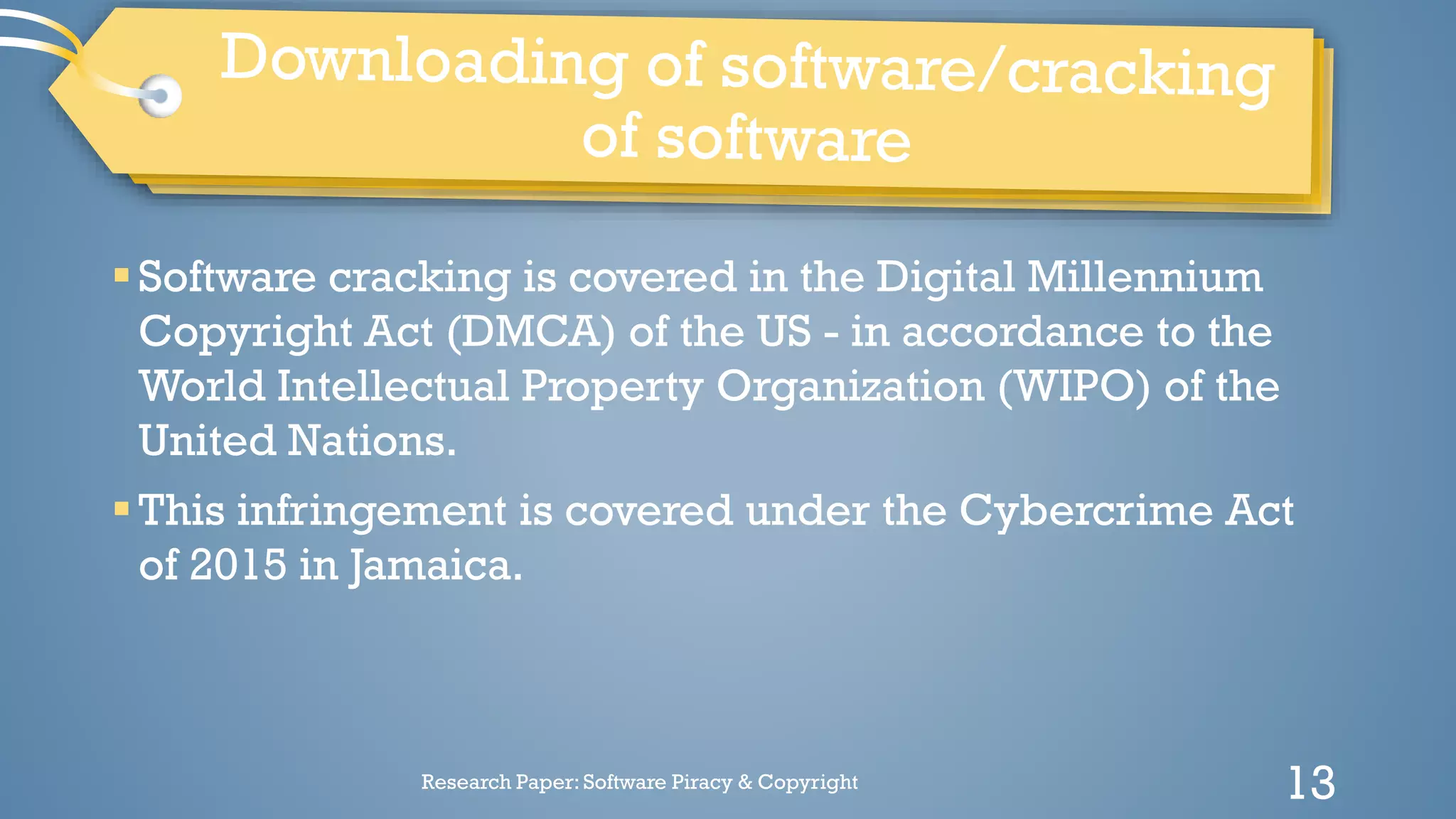This document discusses various topics related to software piracy and copyright, including:
- Definitions of software piracy, copyright, and different types of software licensing
- Examples of illegal activities such as installing pirated software, downloading cracked software, and sharing copyrighted content without permission
- Differences between legal uses of software for personal or educational purposes compared to illegal downloading and distribution
- How recent legal amendments in Jamaica may help address software piracy and copyright infringement
































